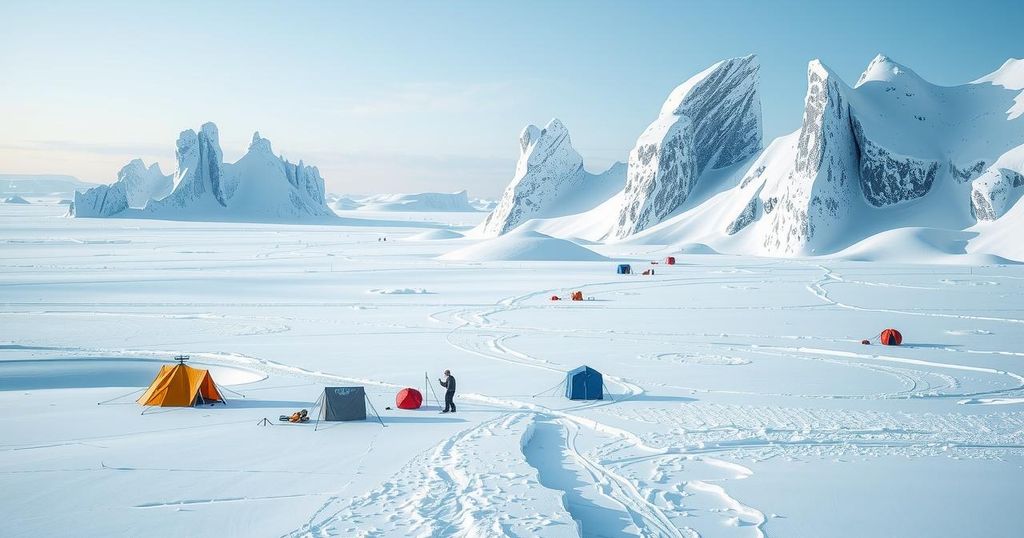The Role and Challenges of Antarctic Research from South Africa’s Sanae IV Base

Research at South Africa’s Antarctic base focuses on climate change, essential for understanding global environmental cycles. Scientists face extreme conditions and logistical challenges while studying significant phenomena such as the ozone hole and ice core data. Antarctic research fosters crucial insights into broader global issues including sea-level rise and climate impact on ocean systems.
A recent incident at South Africa’s Sanae IV base in Antarctica has brought the focus to the vital research conducted in this remote region. Notably, David William Hedding, a geomorphologist with experience in Antarctic research, discussed the significance of this area, especially regarding studies related to climate change and its global implications.
Research in Antarctica primarily concentrates on climate change, given the continent’s sensitivity to global cycles due to its fragile environment. As a pristine site largely untouched by human influence, Antarctica serves as an excellent natural laboratory for examining the effects of climate variations and atmospheric conditions. Furthermore, its geographic location allows for unique studies, such as those investigating space weather’s impact on Earth’s magnetic field and its repercussions on technology and human health.
Approximately 30 countries maintain research stations in Antarctica, fostering international cooperation among scientists. South Africa’s facility, SANAE IV, typically accommodates 10 to 12 personnel and is located on a nunatak in Western Dronning Maud Land. Researchers work in Antarctica for about 15 months, enduring extreme conditions throughout the long winter.
Significant discoveries in Antarctica include the identification of the ozone hole in 1985, a pivotal finding that led to the Montreal Protocol aimed at eliminating harmful chlorofluorocarbons. Additionally, researchers have utilized ice cores to reconstruct historical climate fluctuations, gaining invaluable insights from the past 1.2 million years which aid in predicting future climate scenarios.
Scientists face considerable challenges while conducting their research in the harsh Antarctic environment. Issues such as remoteness, extreme cold, and continuous daylight complicate logistics and operations. Many scientists, including geologists from the University of Johannesburg, spend extensive periods in the field, dealing with substantial distances and self-sufficiency to gather samples under arduous conditions during the austral summer months.
The significance of scientific work in Antarctica cannot be overstated, as the region is crucially linked to global systems. The melting of ice in Antarctica due to climate change directly contributes to rising sea levels, impacting global ocean currents and food webs. Gaining comprehensive insights into these changes is critical for societal adaptation and resilience to impending challenges posed by climate change.
In summary, research activities in Antarctica are pivotal for understanding climate change and its extensive consequences. The Antarctic serves as a unique environment for scientific inquiry, influencing global systems. Key discoveries, including the ozone hole and ice core analyses, underscore the importance of continued investigation. As climate impacts intensify, the necessity for robust scientific comprehension and collaborative efforts becomes paramount for societal resilience and adaptation.
Original Source: allafrica.com






